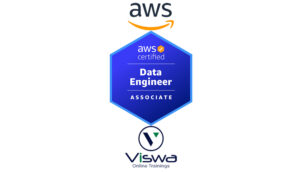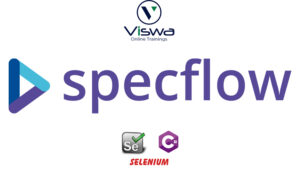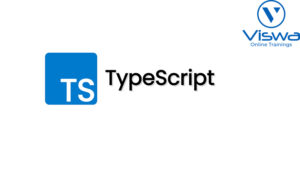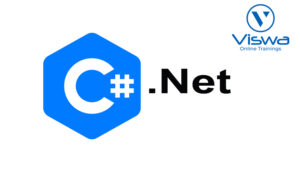Oracle SQL and Plsql Certification Training
One of the top providers of online IT training worldwide is VISWA Online Trainings. To assist beginners and working professionals in achieving their career objectives and taking advantage of our best services, We provide a wide range of courses and online training.
Learners : 1080
Duration : 30 Days
About Course
The collection of statements known as Structured Query Language (SQL (Oracle SQL and Plsql)) is used by all users and programmes to access data in an Oracle database. Users can frequently access databases through application programmes and Oracle tools without directly using SQL, but these applications must utilise SQL to process user requests. This chapter gives background knowledge on SQL, which is the language that most database systems employ. Enrol today to earn your certification.
Oracle SQL and Plsql Training Course Syllabus
Oracle SQL and Plsql
✔ DBMS Concepts
✔ Role of Oracle 11g in Information management.
✔ Concepts of RDBMS
✔ RDBMS Rules (Codd’s Rules)
✔ What is Object Model?
✔ Features of Oracle 9i/10g/11i/12c
✔ E-R Modeling
✔ What is SQL?
✔ Roles of SQL in RDBMS
✔ What is SQL * Plus
✔ Types of Plus Commands
✔ Data Definition Language (DDL)
✔ Naming Conversion in Oracle
✔ Data Types of Oracle
✔ Implementation of Data Integrity & Integrity Constraints
✔ Normalization
✔ System Tables & Data Dictionary
✔ Insert
✔ Select
✔ Update
✔ Delete
✔ Single Row Functions (Oracle SQL and Plsql)
✔ Group functions
✔ Arithmetic Functions
✔ String Manipulation Functions
✔ Date Manipulation Functions
✔ Data conversion Functions
✔ List of Functions /Misc.Functions
✔ What is joining?
✔ Types of joins
✔ Cartesian joins
✔ Equi join/Non-Equi/Outer/Self join
✔ Simple /complex subqueries
✔ Co-related subquery
✔ Filters/Set operator usage
✔ Arithmetic Operators
✔ Relational Operators
✔ Relational Negation Operators
✔ Logical Operators
✔ Set Operators
✔ Index
✔ Types of Indexes
✔ Unique Index
✔ Non-Unique Index
✔ Function Bases Index
✔ Types of views (Oracle SQL and Plsql)
✔ Forced views
✔ Rules for DML on Views
✔ In-Line Views
✔ Materialized Views
✔ Types of synonyms
✔ Private synonym
✔ Public synonym
✔ Security aspect
✔ Usage mechanism of clusters
✔ Usage of various clauses
✔ Pseudo columns
✔ Simple Deletion
✔ Critical Data Deletion
✔ Using joining concept
✔ Using Sub query concept
✔ Using correlate Sub queries
✔ Table Update
✔ Multi-column updates
✔ Table Updation Using Decode Statement
✔ COMMIT
✔ ROLLBACK
✔ SAVE POINT
✔ Data Consistency
✔ GRANT
✔ REVOKE
✔ Create New User
✔ Assign Privileges For User
✔ What are privileges?
✔ What is a role?
✔ Grant privileges
✔ Cascading privileges
✔ Password Change
✔ Oracle Table Partitions
✔ Range Partitions
✔ List Partitions
✔ Composite Partitions
✔ Introduction to PL/SQL
✔ Key benefits of PL/SQL over SQL
✔ The architecture of PL/SQL
✔ PL/SQL Block Structure
✔ Constructs of PL/SQL
✔ Data type support in PL/SQL
✔ Variables /Constants of PL/SQL
✔ Flow control Statement Types
✔ If /Nested if .. / Exit/Go to/Raise
✔ Instructive statement types
✔ Simple loop (infinite loop)
✔ While loop
✔ For loop
✔ Reverse For loop
✔ What is Embedded SQL
✔ Need of Embedded SQL
✔ Constructs of Embedded SQL
✔ Transactions through Embedded SQL
✔ Valid statements of SQL
✔ Dynamic SQL
✔ What is an Exception?
✔ Type of Exceptions
✔ User Defined Exceptions
✔ Use of raise and its Scope
✔ Raise – Application-Error ( )
✔ PRAGMA EXCEPTION_INIT ( )
✔ Description
✔ Advantages
✔ Types of variables of PL/SQL
✔ Record type of PL/SQL
✔ Instruction to Cursor Management
✔ Pictorial view of cursor Diagram
✔ Implicit curser
✔ Explicit curser
✔ Cursor 1st Model
✔ Cursor 2nd Model
✔ Cursor 3rd Model
✔ Cursor 4th Model
✔ Cursor 5th Model
✔ Cursor Attributes
✔ Cursors using a simple loop
✔ Cursor for loops
✔ Cursor Exceptions
✔ Cursor Parameters
✔ Static Ref cursor
✔ Dynamic Ref cursor
✔ Dynamic behaviors of cursor mnt
✔ User-defined types (RECORDS)
✔ PL/SQL tables (2D ARRAYS)
✔ Dynamic behaviors of PL/SQL tables
✔ PL/SQL table Attributes
✔ Bulk Collect
✔ Bulk Bind
✔ Types of PL/SQL blocks
✔ Anonymous PL/SQL block
✔ Named PL/SQL block
✔ Stored PL/SQL
✔ Procedures
✔ Type of parameters
✔ Procedures Using In Parameter
✔ Procedures Using Out Parameter
✔ Procedures Using InOut Parameters
✔ Functions
✔ Description
✔ Advantages over Standalone Schema objects
✔ Encapsulation
✔ Package overloading
✔ Packages Create Using Global Variables
✔ Packages Create Using Record Types
✔ Packages Create Using Cursors
✔ Packages Create Using Ref Cursors
✔ Packages Create Using plsql Table Types
✔ Packages Create Using Procedures
✔ Packages Create Using Functions
✔ 12 Types of Triggers
✔ Triggering events
✔ Usage of Old & New reference
✔ View Trigger instead of Trigger Cascading /firing
✔ Table mutation error
✔ Bind variable support
✔ Special clauses of Triggers
✔ Statement Level Triggers
✔ Row Level Triggers
✔ Object Types
✔ Create Object Tables
✔ Create Nested Tables
✔ Index By Tables / Associative Array
✔ Varray
✔ New enhancements in oracle 10g,11g, And 12c
✔ New clauses in joining of tables
✔ Inner join/left outer join /right outer join
✔ Full outer join/natural full outer join
✔ Using clause/cross join
✔ Multi-table inserts
✔ Insert all command
✔ Merge command (UpSert)
✔ NVL ( ) enhancements
✔ Case statement of select command
✔ Searched CASE expression
✔ Heap tables
✔ Index Organized Tables (IOT)
✔ Temporary tables/global tables
✔ Multi-column updates
✔ Multiple Row subqueries
✔ New function EXTRACT( )
✔ Usage of subquery in the select list
✔ Autonomous Transaction
✔ Flashback Concepts
✔ Purge Concepts
| Live Instructor Based Training With Software |
| Lifetime access and 24×7 support |
| Certification Oriented content |
| Hands-On complete Real-time training |
| Get a certificate on course completion |
| Flexible Schedules |
| Live Recorded Videos Access |
| Study Material Provided |
Oracle SQL and Plsql Training - Upcoming Batches
7th NOV 2022
8 AM IST
Coming Soon
AM IST
5th NOV 2022
8 AM IST
Coming Soon
AM IST
Don't find suitable time ?
CHOOSE YOUR OWN COMFORTABLE LEARNING EXPERIENCE
Live Virtual Training
-
Schedule your sessions at your comfortable timings.
-
Instructor-led training, Real-time projects
-
Certification Guidance.
Self-Paced Learning
-
Complete set of live-online training sessions recorded videos.
-
Learn technology at your own pace.
-
Get access for lifetime.
Corporate Training
-
Learn As A Full Day Schedule With Discussions, Exercises,
-
Practical Use Cases
-
Design Your Own Syllabus Based
Oracle SQL and Plsql Online Training FAQ'S
- Oracle SQL and Plsql provides the feature of decision-making, looping, and branching by making use of its procedural nature.
- Multiple queries can be processed in one block by making use of a single command using PL/SQL.
- The PL/SQL code can be reused by applications as they can be grouped and stored in databases as PL/SQL units like functions, procedures, packages, triggers, and types.
- PL/SQL tables are nothing but objects of type tables that are modeled as database tables. They are a way to provide arrays that are nothing but temporary tables in memory for faster processing.
- These tables are useful for moving bulk data thereby simplifying the process.
The acronym SQL stands for Structured Query Language. It is the typical language used for relational database maintenance and a wide range of data processing tasks. The first SQL database was created in 1970. It is a database language used for operations such database creation, deletion, retrieval, and row modification. It is occasionally pronounced “sequel.” It can also be used to manage structured data, which is made up of variables called entities and relationships between those entities.
- Data definition language (DDL): It defines the data structure that consists of commands like CREATE, ALTER, DROP, etc.
- Data manipulation language (DML): It is used to manipulate existing data in the database. The commands in this category are SELECT, UPDATE, INSERT, etc.
- Data control language (DCL): It controls access to the data stored in the database. The commands in this category include GRANT and REVOKE.
- Transaction Control Language (TCL): It is used to deal with the transaction operations in the database. The commands in this category are COMMIT, ROLLBACK, SET TRANSACTION, SAVEPOINT, etc.
Get ahead in your career by learning Oracle SQL and Plsql through VISWA Online Trainings
An organized collection of data that is divided into tables, rows, columns, and indexes is known as a database. It facilitates the user’s frequent discovery of pertinent information. Data access, data modification, data retrieval, data saving, and data management are all made incredibly simple by this electronic system. Due to its great operational ease and ease of use, almost every organization employs a database to store its data. The database gives us perfect access to the data and enables us to carry out necessary operations.
Reviews
 Vishnu Gadipudi2023-08-20I Enrolled in VISWA Online Trainings for IBM Integration BUS course . Recently I Completed IBM Integration BUS Batch. It was Really Awesome Experience. Best Place To Learn , Experienced Trainer, Gives Us High Level Knowledge....
Vishnu Gadipudi2023-08-20I Enrolled in VISWA Online Trainings for IBM Integration BUS course . Recently I Completed IBM Integration BUS Batch. It was Really Awesome Experience. Best Place To Learn , Experienced Trainer, Gives Us High Level Knowledge.... Navya Biradavolu2023-08-20I was enrolled for looker Bl Tool,it was amazing experience . especially soft skill batch is one of my favourite batch . overall learning process is quite impressive.
Navya Biradavolu2023-08-20I was enrolled for looker Bl Tool,it was amazing experience . especially soft skill batch is one of my favourite batch . overall learning process is quite impressive. Indla sneha2023-08-20I have joined I have joined VISWA Online TRAININGS for Java full stack course and i have completed Advance Java module. I had a good knowledge of Hibernate, spring,spring boot,spring MVC. Tutor has knowledge in depth and is supportive. Srinadh sir solved all our doubts....
Indla sneha2023-08-20I have joined I have joined VISWA Online TRAININGS for Java full stack course and i have completed Advance Java module. I had a good knowledge of Hibernate, spring,spring boot,spring MVC. Tutor has knowledge in depth and is supportive. Srinadh sir solved all our doubts.... bindu hima2023-08-20I am recently completed Talend course and trainer is Rajendra very professional and helpful. All the doubts were solved in a precise manner.
bindu hima2023-08-20I am recently completed Talend course and trainer is Rajendra very professional and helpful. All the doubts were solved in a precise manner. Tarunasree Gowra2023-08-20"I truly enjoyed this course." Chaitanya sir fantastic-very knowledgeable. Sir give us very informative and clear instruction on how to achieve the goal. Thank you!
Tarunasree Gowra2023-08-20"I truly enjoyed this course." Chaitanya sir fantastic-very knowledgeable. Sir give us very informative and clear instruction on how to achieve the goal. Thank you! Tejaswini Kommu2023-08-20Overall Linux Admin sessions batch was very good. Mr. RAM Krishna teaching was very helpful to remind our basic concepts in linux & networking.
Tejaswini Kommu2023-08-20Overall Linux Admin sessions batch was very good. Mr. RAM Krishna teaching was very helpful to remind our basic concepts in linux & networking. Gopanaboina Mounika2023-08-20It was great learning with such a great and experienced staff. Praveen Sir (Oracle EPM Cloud - FCCS) was very helpful and operations team also very helpful in solving any minor problems students go through process.
Gopanaboina Mounika2023-08-20It was great learning with such a great and experienced staff. Praveen Sir (Oracle EPM Cloud - FCCS) was very helpful and operations team also very helpful in solving any minor problems students go through process. Jyothi Gutlapalli2023-08-20I like to share my experience which provide lots of courses and one of those I recently completed my Salesforce BA Course and I like to tell you it was a great experience and my knowledge and confidence is really boosted after completing this course.
Jyothi Gutlapalli2023-08-20I like to share my experience which provide lots of courses and one of those I recently completed my Salesforce BA Course and I like to tell you it was a great experience and my knowledge and confidence is really boosted after completing this course. Harshibandi2023-08-20Good experience and great learning platform for Hyperion Essbase and Planning. The faculty is also well trained and soft spoken.
Harshibandi2023-08-20Good experience and great learning platform for Hyperion Essbase and Planning. The faculty is also well trained and soft spoken. Chaitu Viswa2023-08-20It was very good session for QlikView. I would like to thank to teacher Mr.Chandu for providing guidance for the required modules. Thanks VISWA Team for giving apportunity to leran new skills.
Chaitu Viswa2023-08-20It was very good session for QlikView. I would like to thank to teacher Mr.Chandu for providing guidance for the required modules. Thanks VISWA Team for giving apportunity to leran new skills.




